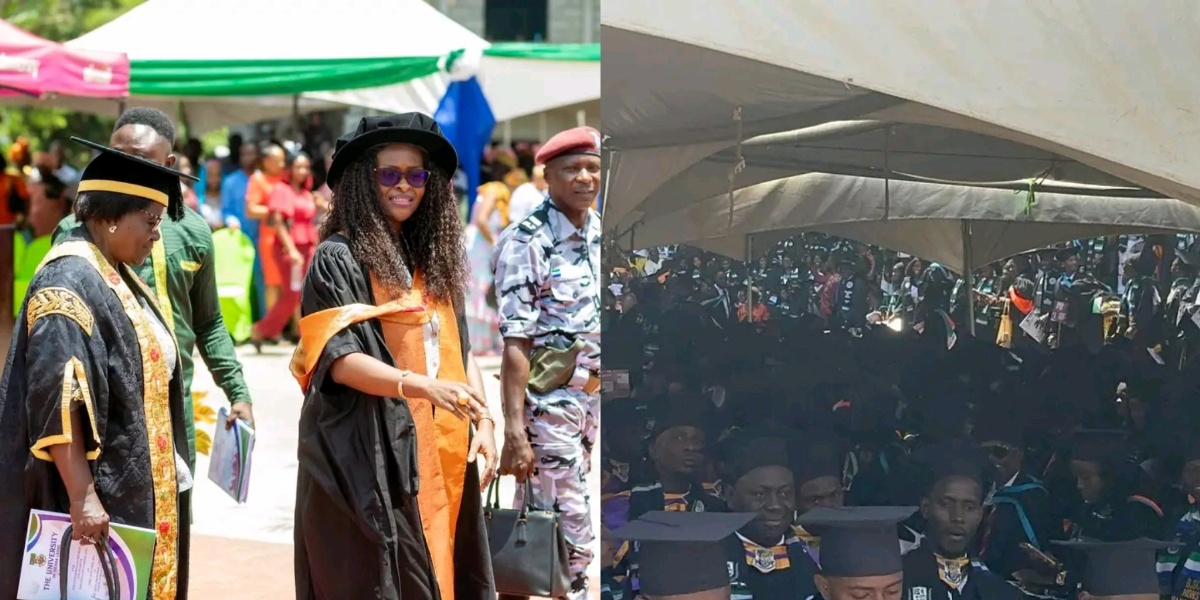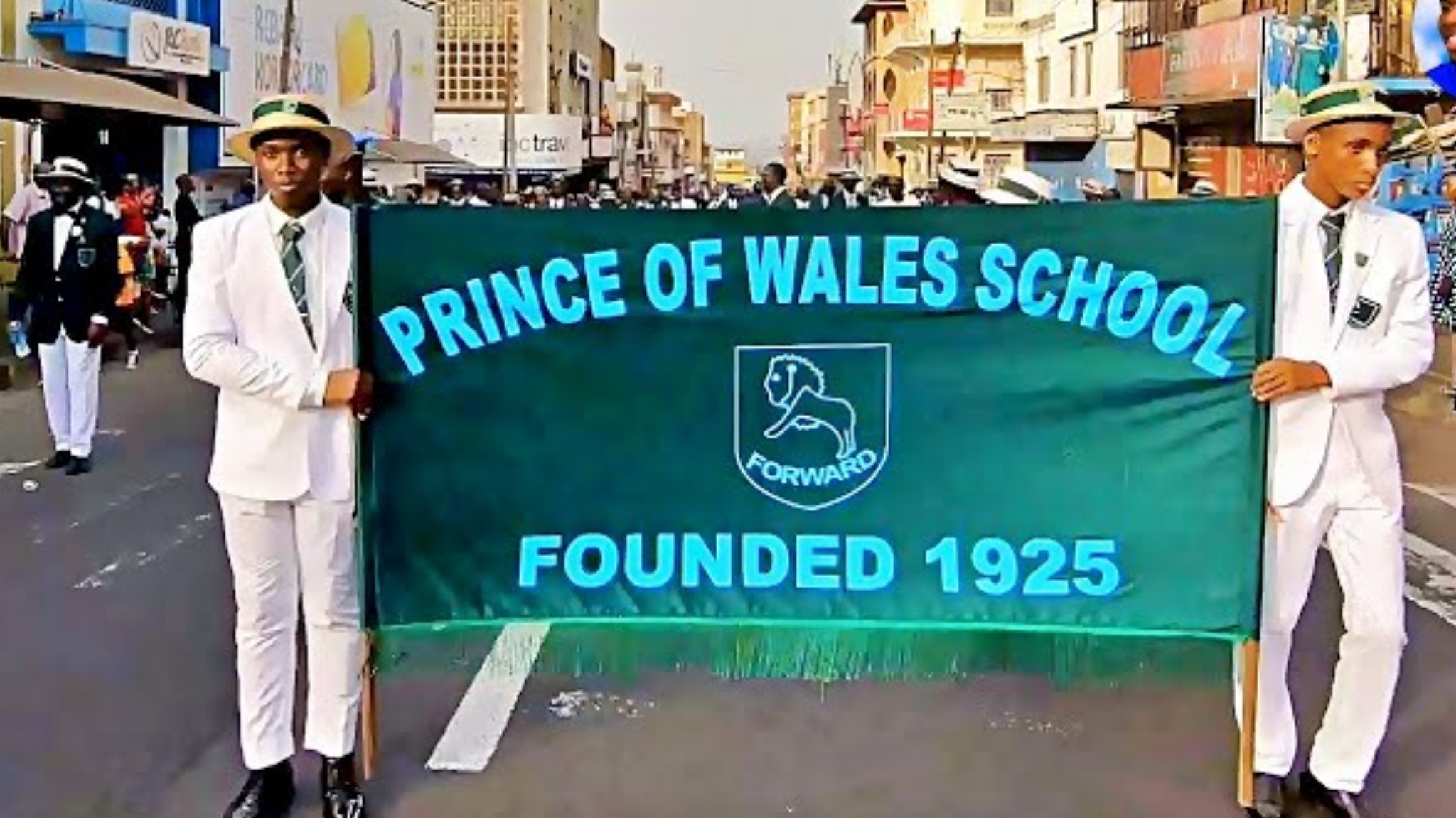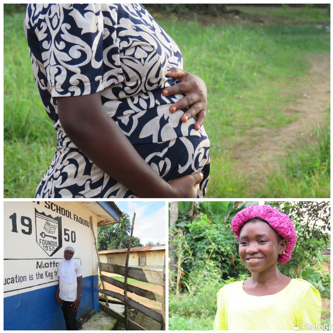
By: Sulaiman Stom Koroma
Fatmata is a 19-year-old girl living in the southern countryside of Sierra Leone. Despite being wreathed in innocent smiles with beady attentive eyes, Fatmata is an articulate and self-assured girl who has a story to tell, a story about her being forced to get married at the age of 16.
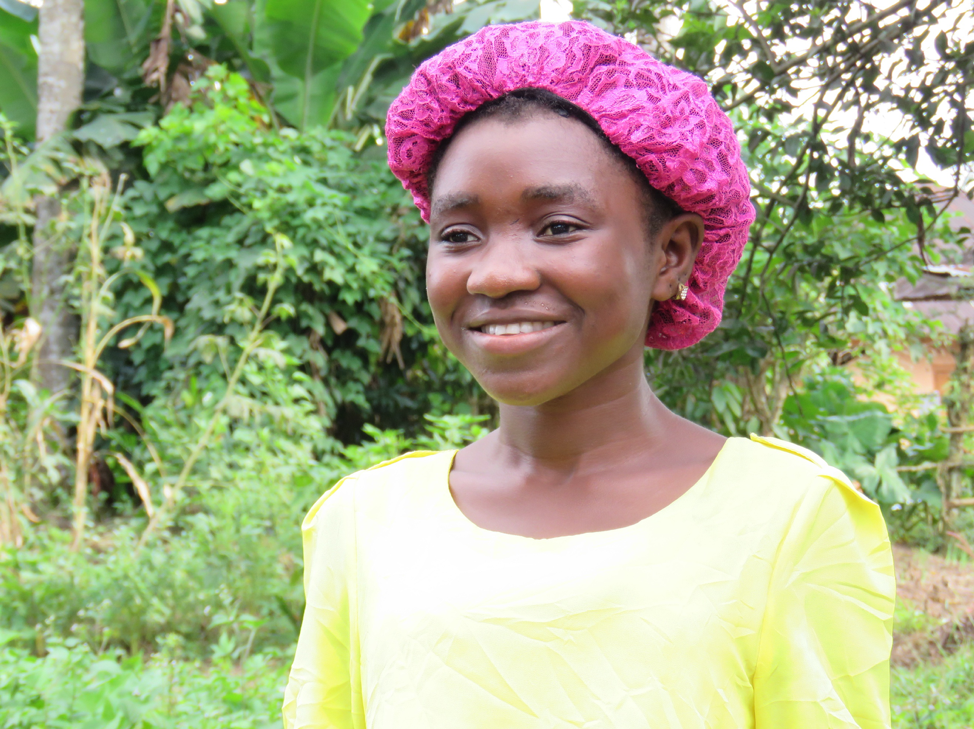
It will soon be dusk and another day closer to the end of nine months. Nine months of carrying a pregnancy that 13-year-old Aisatu had not planned to have. She is eight months pregnant and will soon be a mother. In her short journey of life, she has experienced so much pain that has now made her adapt to a closed cold heart. She has put on many hats. The hat of childhood, teenagehood, and will soon put on a hat of motherhood. She and her baby will have only 13 years of age difference. It is an absurd and unfortunate situation that leaves one wondering whether someone can be a child and an adult concurrently. She was forced to marry at age of 13.
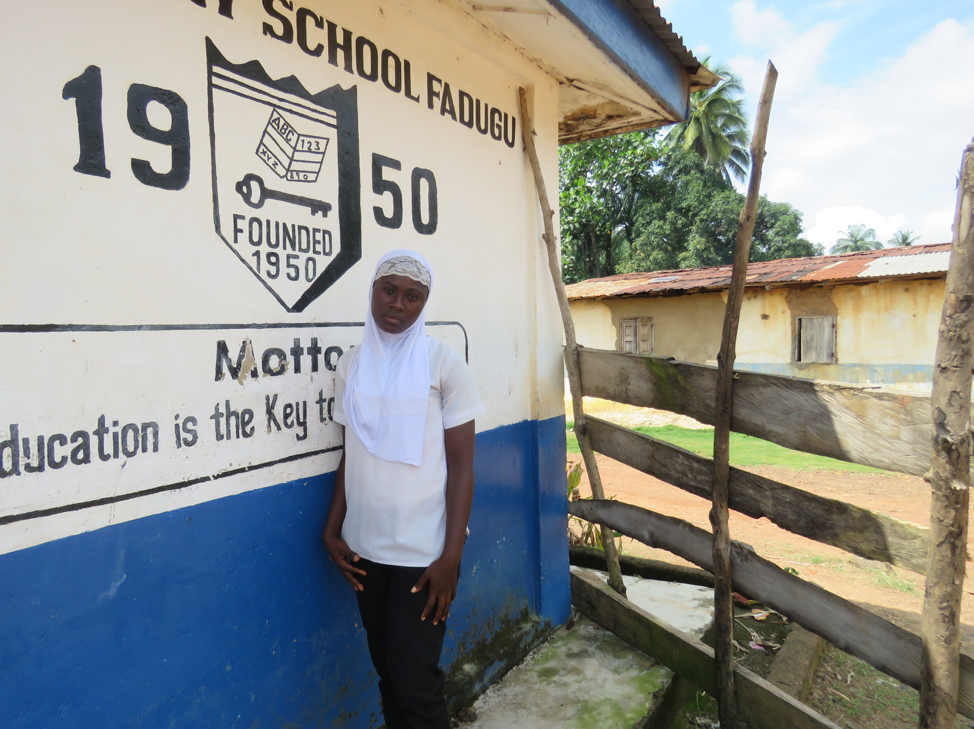
Her next move was something that shocked them both. “I stood up. Shock my head, then blurted words that even I did not plan to. I shouted back at him, “That was her! For me, I want to finish school. I will never marry while I am still this young!” Aminata, 14 years old girl from Kabala who was forced by her father to get married at an early age.
Above are just a few of many case stories of hundreds of girls who are been forced to get married at an early age by either their biological parents or caretakers. Their stories are sad, disheartening, disturbing and one that will leave you in tears.
Child marriage refers to any formal marriage or informal union between a child under the age of 18 and an adult or another child.
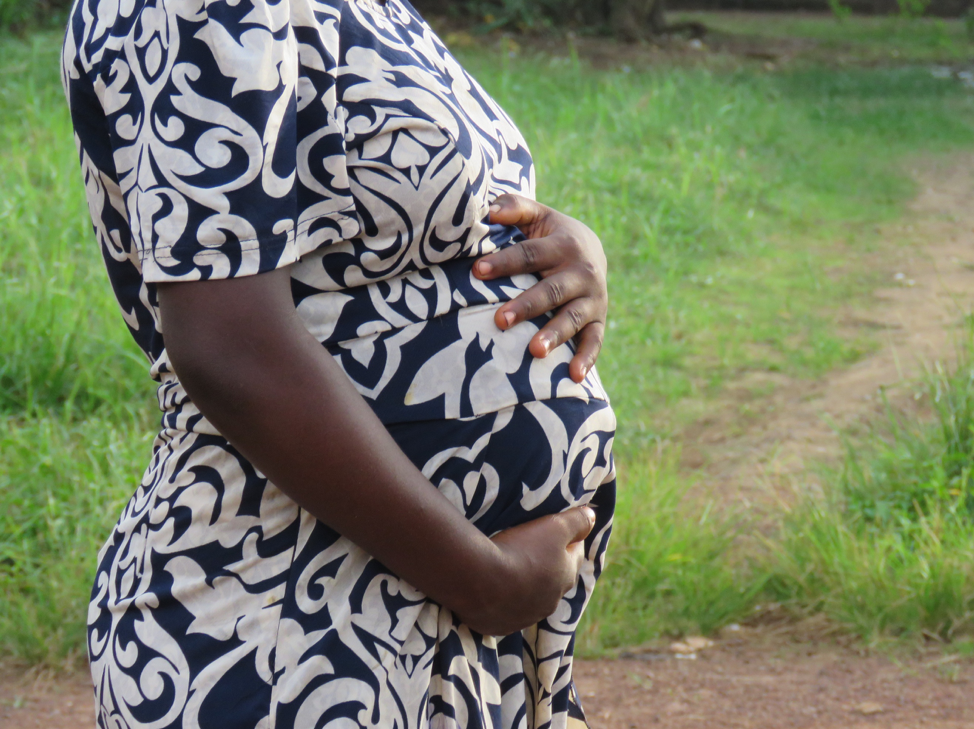
According to UNICEF data, an estimated 25 million child marriages have been prevented due to progress during the past decade. Of these, 7 million were expected based on the prior trends and 18 million were due to an acceleration of progress. Still, approximately 650 million girls and women alive today were married before their 18th birthday. In West and Central Africa in particular, the region with the highest prevalence of child marriage, progress has been among the slowest in the world. At the same time, population growth threatens to result in an ever-higher number of child brides in sub-Saharan Africa during the coming years. Of the most recently married child brides globally, close to 1 in 3 are now in sub-Saharan Africa, compared to 25 years ago when the proportion was 1 in 7. This scenario threatens to deliver a devastating blow to the existing efforts to eradicate child marriage, going on in the past decades.
According to UNICEF child marriage rates, 30% of girls in Sierra Leone are married before their 18th birthday and 13% are married before the age of 15. 7% of boys in Sierra Leone are married before the age of 18, which makes Sierra Leone one of the top 20 countries with the highest prevalence of child marriage among boys. Child marriage is most common in Koinadugu, Tonkolili, Kambia, and Port Loko.
Meanwhile, Save the Children also shares similar figures of the extent to which child marriage has taken a toll in Sierra Leone- Sierra Leone has the 19th highest child marriage rate in the world, with 13% of girls married by age 15, and 39% by age 18.
“These figures are alarming, but when you consider the vulnerability of these girls, poverty, and their families seeing them as a burden, you will expect such. The worst thing is seeing a 13, 14, or 15 years old give given out for marriage, what does she know about marriage life, this is just exploitation and destroying the future of these girls” says Kadiatu Bachalle-Taylor a Gender Specialist.
Girls are more at risk of child marriage than boys, with a median age at first marriage of 18 for women compared to 25 for men, those at risk include those in poor and rural areas – child marriage rates are 57% among the poorest fifth of rural girls in the Eastern, Southern and Northern Provinces, where child marriage rates are over 40%, compared to 20% in the Western Province.
It is now a fact that many of the complex factors that drive child marriage in a stable environment get exacerbated during health emergencies like the COVID-19 pandemic. For example, during the Ebola crisis between the periods 2014 to 2016, there was a sharp increase in the incidences of child marriages in Sierra Leone. Also, teenage pregnancies increased by up to 65%, during that crisis, and related displacement, where girls spend more time at home, even in this present COVID-19 pandemic.
Advancing children’s rights and equality for girls is Plan International’s key focus in addressing the structural violence perpetrated against girls. This is done through Plan International’s influencing and programs approach, which aims at addressing the systemic barriers to the actualization of girls’ rights.
Girls suffer a lot of violence stemming from sexual violence, physical violence, sexual exploitation and abuse, child marriage, and other related violence. Women and Girls’ positions and conditions are defined by the norms, practices, and values of their societies. This is believed to have undermined the realization of the rights of women and girls in the world.
Sierra Leone is one of the countries in Sub-Saharan Africa facing the challenge of Child Marriage and unwanted babies. The Government of Sierra Leone has responded to the call of the African Union’s joint effort to end such practices through campaigns and strategies, Female Genital cutting, Child marriage, Sexual Harassment, and Sexual Violence are impediments to the realization of the rights of girls in Sierra Leone. During the Ebola outbreak, over 14,000 girls were reported to be pregnant in Sierra Leone. Researchers have pointed out the fact that FGM, Early Marriage, and teenage pregnancy are factors contributing to girls dropping out of school.
The entrenched socio-cultural norms and beliefs and religious ideologies continue to exist and affect the lives of girls and young women.
In Sierra Leone, teenage pregnancy and child marriage often trigger a vicious cycle of deprivation and disempowerment for girls, with many marriages characterized by violence and servitude. Affected girls usually drop out of school, depriving them of learning and economic opportunity later in life. Child mothers are vulnerable to mental health problems, often have sexual and reproductive health complications due to having babies before their bodies are ready, and their children are more likely to die young or be malnourished.
Kadiatu Koroma runs an organization looking at girls and women’s rights she said that in most of the communities they work child marriage is visible everywhere “you see young children as old as 11 in marriage houses and with kids in their hands, this is devastating, pathetic and sad for the prospect of these kids”. She said.
Media reports, Police records have indicated a high prevalence of GBV cases in Sierra Leone. Over 90% of these are perpetrated against children below the age of 18 years. Addressing these issues has been challenged with a lot of structural challenges.
However, Child marriage, female genital mutilation, adolescent pregnant girls’ access to education, and other sexual and reproductive health rights services remain to be a taboo, as Sierra Leoneans hold on to expectations and norms that govern the practices.
“We receive many cases of girls being pressured into child marriage or some that have been married off and need rescue. We have established several human rights clubs in the communities to discuss child marriage from a rights-based perspective. Girls and boys in these human rights clubs also act as mentors to other girls and boys in the community and also serve as role models in the community. This awareness has brought about resistance to joining the practice in the communities. The project implemented in these areas has recorded several numbers of cases where girls resisted child marriage,” says Evariste Sindayigaya, the Country Director of Plan International in Sierra Leone.
The 2012 Sexual Offences Act prohibits sexual activity with children (anyone under the age of 18, including those in a marital relationship). 2017 Child Rights Act also prohibits marriage for anyone under the age of 18, among other protective provisions for children. However, this is undermined by the 2008 Customary Marriage Act, which allows marriage under 18 years with parental consent. Progress towards reconciling this discrepancy has been slow.
In PortLoko District the analysis below shows clearly the reason for Child Marriage in that part of the country.
POVERTY: Children from poor homes are most often the breadwinners of their homes. Parents send their girl child into early marriages to reduce the burden of taking care of their too many children. Girls from poor homes go into early marriages without due consent and consultations.
CULTURE AND TRADITION: Most parents consider the fact that, because they were married at an early age, their children too must go through the same. Again in PortLoko, once the girl child starts to show signs of maturity like breast enlargement, parents will instantly find a husband for her; to either prevent unwanted pregnancy or to reduce family responsibilities.
RELIGIOUS FACTOR: Islam which is the dominant religion in Port Loko, gives parents the right to accept dowry from a suitor who wants to marry a girl. As a result of this, most Muslim girls suffer the wrath of early marriage.
ILLITERACY AMONG PARENTS: Ignorance of laws that guarantee and protect the rights of children is also another cause. Because of the lack of sensitization and awareness, the number of marriages among young girls stands on the increase.
According to the Family Support Unit manager in PortLoko, 65% of girls went into early marriage life during Ebola and about 50% are replicating the same during this Covid-19 pandemic.
Sierra Leone has committed to eliminating child, early, and forced marriage by 2030 in line with target 5.3 of the Sustainable Development Goals. Sierra Leone co-sponsored the following Human Rights Council resolutions: the 2013 procedural resolution on child, early, and forced marriage, the 2015 resolution on child, early, and forced marriage, the 2017 resolution on recognizing the need to address child, early, and forced marriage in humanitarian contexts, and the 2019 resolution on the consequences of child marriage. In 2019, at the Nairobi Summit on ICPD25, the Government of Sierra Leone committed to the overall goal of zero Gender-Based Violence and harmful practices by 2030, and enact the Prohibition of Child Marriage Bill which will criminalize child marriage for all types of marriages by the end of 2020.
To be able to address this problem in late 2018, the government, in collaboration with non-governmental organization partners and United Nations agencies, launched a National Strategy on the Prevention of Teenage Pregnancy and Ending Child Marriage in Sierra Leone (2018–2022). The National Strategy details the commitments to tackle the challenge of adolescent pregnancy and child marriage made across five government ministries. The President of Sierra Leone Julius Maada Bio, declared a state of emergency for sexual exploitation and abuse, calling for a free medical examination and treatment for survivors of Sexual and Gender-based Violence, the speedy trial of cases within 365 days, and a review of the Sexual Offenses Act to address the menace. Some of these concerns stem from child marriage.
Additionally, the first lady of Sierra Leone has declared a Hands of Our Girls Campaign, whiles the Civil Society and other Non-Governmental organizations continue to campaign and address issues of harmful traditional practices like female genital mutilation and child marriage. Previously, the government implemented the “Let Girls be Girls, Not Mothers” (2013–2015), a two-year national strategy for the reduction of teenage Pregnancy developed in response to the recognition by national authorities of the high rates of teenage pregnancy and child marriage in the country. The former First Lady of Sierra Leone, Sia Nyama Koroma (the current First Lady is Fatima Bio), initiated the idea of a regional high-level meeting on child marriage in West and Central Africa, which was held in 2017 in Dakar.
“We have seen much commitment from the government with laws and instruments passed, what we want to see ineffective and solid monitoring from community level where the majority of these activities takes place”. Said Kadiatu Bachalle-Taylor
The evanescent nature of good childhood times has been stolen from *Aisatu. But she is hopeful and wants to go back to school after giving birth. She intends to study domestic science and home management, a dream that she hopes to achieve.
Fatmata, might not be the famous Joan of Arcadia at her young age, but she still stands out as a survivor of child marriage. She refused to be married off, and this paid off. She can now pursue her dreams and has a chance to get her fairy tale end of becoming a lawyer. “Girls in my country face many injustices. One day I will represent them in court. I will give them hope. It might be difficult, but if I escaped, others will,” she says with a lazy smile on her face but a determined tone.
Aminata lost her source of school fees, but she won her determination not to be married off as a child. Hers is a story of determination and resilience. She lives with a relative who has protected her from harmful practices so far.
“The situations are mixed; some will escape while others have no choice. I hope that as time goes by, we shall find a lasting solution to this ugly situation in the country” Kadiatu Koroma fonder Women 4 women concluded.


